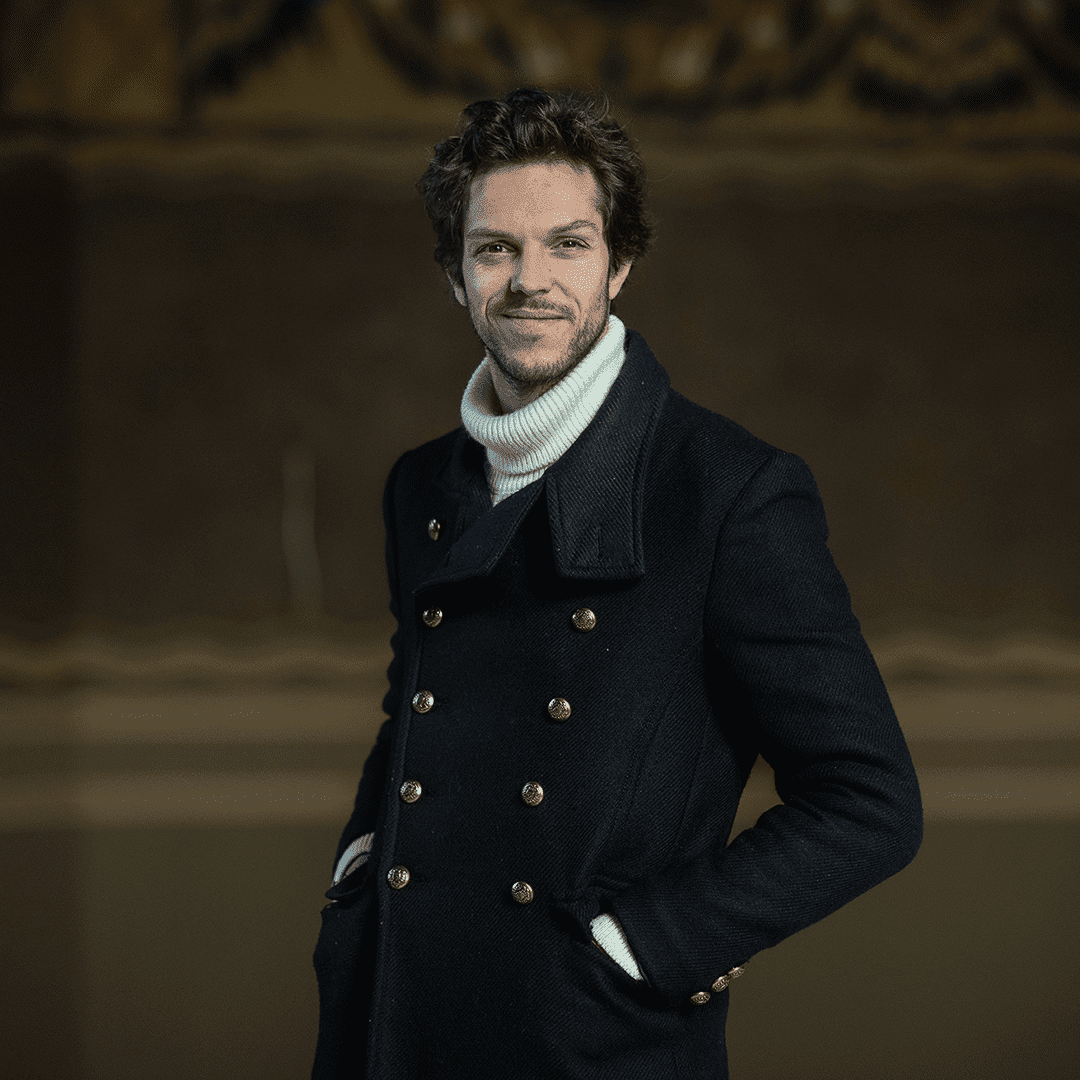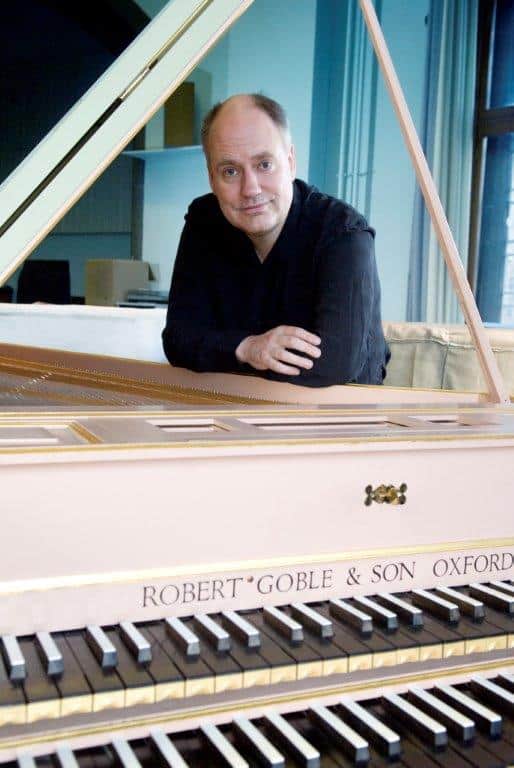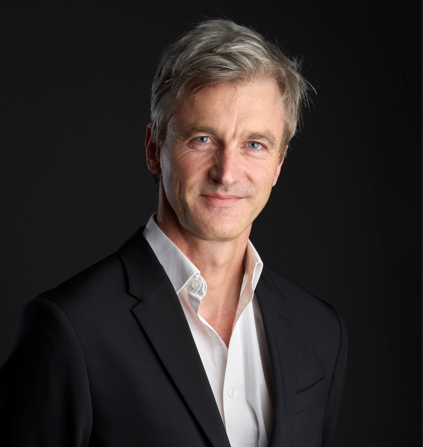Antonio Florio
Antonio Florio was born in Bari, where he received his classical education, graduating from cello, piano and composition classes at the local conservatory, under the direction of Nino Rota. With time, he expanded his musical interests by adding early instruments and Baroque performing techniques, studying harpsichord and viola da gamba.
As a young man, he taught students at the conservatory, and in 1987, he founded the Cappella della Pietà de’ Turchini, an ensemble focused on early music, with which he successfully brought to light the performance techniques developed in Southern Italy in the fascinating repertoire of Neapolitan music of the 17th and 18th centuries. His multi-pronged activities are aimed, on the one hand, at musicological research, based on cooperation with world-famous musicologist Dinko Fabris, and on the other hand, performing forgotten masterpieces on prestigious stages all over the world which he has also recorded on over 50 CDs.
Among the many works rediscovered by Antonio Florio since 1987 are “La colomba ferita” (1670), “Il schiavo di sua moglie” (1671) and “La Stellidaura vendicante” (1674) by the most famous 17th-century Neapolitan maestro Francesco Provenzale; “Il disperato innocente” by Francesco Boerio (1673); “La finta cameriera” by Gaetano Latilla (1673); “Li zite n’galera” by Leonardo Vinci (1722); “Pulcinella vendicato” by Giovanni Paisiello (1767); “Statira, principessa di Persia” by Francesco Cavalli (in the Neapolitan version from 1666); Francesco de Majo’s “Motezuma” (1765), Domenico Scarlatti’s “Ottavia restituita al trono” (1703), Pasquale Anfossi’s “La finta giardiniera” (staged together with Wolfgang Amadeus Mozart’s work of the same title at the former Royaumont Abbey), Leonardo Vinci’s “La Partenope” (first contemporary stage performance in the Ponferrada and León theatres in Spain in 2005), Leonardo Leo’s “L’Alidoro” (shown on the stages of Teatro Municipale Valli in Reggio Emilia and Teatro Mercadante in Naples in 2008). All the listed works have been recorded on video and/or on CDs.
In 1999 and 2000, Antonio Florio led the Real Filharmonía de Galicia orchestra from Santiago de Compostela, staging “La serva padrona” and “Stabat Mater” by Giovanni Battista Pergolesi. In 2018, he led the first contemporary performance of “Siroe, re di Persia” by Leonardo Vinci in Teatro San Carlo in Naples.
The artist also boasts numerous interpretations of works from the sacred and instrumental repertoire of Neapolitan music between 1400 and 1800. It is worth mentioning here the “Neapolitan Cello Concerts” album recorded with the cellist Giovanni Sollima; the CD contains works of the old masters, as well as a Baroque-inspired piece composed by Sollima. Another highly successful project by Antonio Florio is “Festa napoletana” recalling street festivals and spectacles in old Naples, presented in various venues around the world, with the participation of the outstanding singer and actor Pino De Vittorio, with whom Florio has been cooperating continuously for over thirty years, as a soloist.
One also cannot overlook Antonio Florio’s activities in the field of education. The artist conducts seminars and master classes in Baroque singing and chamber music, collaborating with numerous European institutions, including the Centre de musique baroque de Versailles, Fondation Royaumont and Conservatoire à rayonnement régional de Toulouse. After taking up the Chair of Chamber Music at the San Pietro a Majella Conservatory in Naples, he conducted an advanced course in singing and interpretation of Baroque repertoire and opened the only university level Master II studies in Italy in the field of early music. He works as an artistic co-director of Scarlatti LAB – a Baroque music laboratory operating as part of the Associazione Alessandro Scarlatti in Naples.
Over the course of his career, Antonio Florio has received numerous awards and distinctions. In 2004, during the Festival Mousiké, he received first prize for “Promoting Mediterranean Music.” His DVD recording of “L’Alidoro” brought him the prestigious Diapason d’Or and L’Orphèe d’Or awarded by the Parisian Académie du Disque Lyrique. In Oviedo, Spain, he won the Luis Gracia Iberni award for the best conductor for the premiere contemporary performance of Domenico Scarlatti’s “Ottavia restituita al trono” in San Sebastián in August 2007. In October 2008, together with his ensemble, he was awarded the Premio Napoli in a special category “Hidden Excellence”, funded by the city.
He took part in the MITO SettembreMusica festival in 2009, presenting a concert version of Handel’s “Aci, Galatea e Polifemo” at Teatro dell’Arte Milan; later, he presented a stage version of Handel’s cantata, directed by Davide Livermore, at Teatro Regio in Turin (a DVD recording made by the Dynamic label received a number of awards). Also in 2009, working in co-production with Teatro San Carlo in Naples and various Spanish theatres, he staged Vinci’s “La Partenope”, winning the Premio Oviedo Award for the best theatrical production.
As a conductor, Florio performed on numerous occasions at Konzerthaus in Vienna where he led the performances of Johan Joseph Fux’s “Orfeo ed Euridice” (2010) and Francesco Conti’s “Dorimena e Tuberone” (2012), among the others. Teatro Calderón held Monteverdi’s “L’incoronazione di Poppea” under the baton of Florio and directed by Emilio Sagi. In 2016, during the Ravello Festival, Florio presented Henry Purcell’s “The Fairy Queen”, a masque based on William Shakespeare’s “A Midsummer Night’s Dream”.
Since 2016, Antonio Florio and his ensemble (which changed its name to Cappella Neapolitana the same year) are responsible for early music activities at the Domus Ars cultural centre, situated in the heart of Naples – in a magnificent Baroque building of a former church of San Francesco delle Monache. In 2018, they participated in the third edition of the “Sicut Sagittae” review organised by the Domus Ars.
The same year brought the performance of Monteverdi’s “L’Orfeo” at Teatro Regio in Turin under Florio’s baton, considered to be “an undertaking of the highest cultural value” by critics, concerts in Amsterdam (at the Concertgebouw) and Ghent, as well as the premiere performance of Vinci’s “Siroe, re di Persia” at Teatro San Carlo in Naples. Antonio Florio’s international recognition for his work in discovering the musical gems of Naples resulted in entrusting him with the post of the resident artistic director of the 19th edition of the prestigious Misteria Paschalia Festival held in Krakow.






